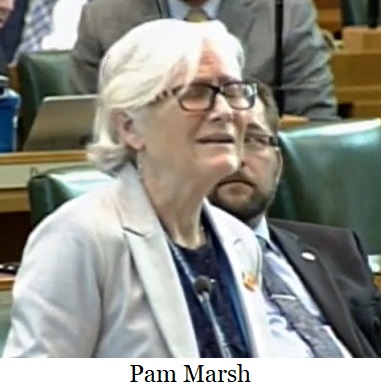 Post an Event
Post an Event
| Benton County Republicans’ Private Fundraising Event, “Bent-on Boots and Bling” with Trey Taylor |
| Friday, September 5, 2025 at 5:00 pm |
| Featuring Trey Taylor
Music Private Event
Friday, September 5, 2025 5:00-5:30 pm VIP Reception
5:30-8:00 pm Heavy Appetizers,
Auction, Concert
Red: $750 VIP Reception
Front Row Table Sponsor
White: $500 Table Sponsor
Blue: $50 per person
Limited Seating. Get Yours Now!!!
Support Local
Dress up: Bling, Cowboy, Patriotic Benton County Republican
FUNDRAISER
www.BentonGOP.org
Get your tickets today at:
https://www.bentongop.org/event-details/benton-county-republicans-fundraiser/form
About Trey:
Trey is the youngest African American Man in Country Music History. The Denver Post wrote
"It's impossible to miss his enthusiasm. With a fondness for cowboy boots, gaudy colors and dazzling jewelry, Trey Taylor could stand toe to toe with any of the Pop, Country or even Rap
contemporaries of his generation.“ |
| Trysting Tree Golf Club, 34028 NE Electric Rd., Corvallis |
Where is Due Diligence?
On September 27, the Salem City Council voted to establish a managed homeless camp of up to 30 “micro-shelters†-- prefabricated buildings with space for two people -- at 2700 Wallace Road N.W. It created a backlash in the community, so Councilor Jim Lewis proposed to reconsider the decision until city staff had completed an analysis of the land and met with neighbors to come up with alternate sites. Lewis stated, “I believe we have mis-stepped, and we need to pull back on the approval, go through the process and that we should do upfront.†The Council was unwilling to do their due diligence to get concession. This would be Salem’s third homeless camp for the projected one-thousand homeless. Two have been established in North Salem.
Salem isn’t the only city putting up homeless villages. It may be in direct response to a federal judge ruling that it is a violation of the Eighth Amendment to prevent the homeless to camp anywhere they please if the city doesn’t provide shelter. Portland City Housing Commissioner Dan Ryan has plans for six managed “
safe rest villages†for homeless people using funds from the American Rescue Plan Act. The first three are set to open with the other three finished by the end of the year.
Eugene may have been the first to establish “opportunity village†of transitional micro-housing. That kickstarted the
Emerald Village of affordable tiny home community. The 14 units complete with a clubhouse with utilities and for gathering were built by teams of local architects and builders providing in-kind services.
Bend has started a process to finding a location for a homeless camp, but faces a lot of concerned citizens. Corvallis has rejected plans for a homeless village and is now struggling with the influx of homeless people. One homeless resident said the resources are more readily available than other counties she has been, including a drop-in center for supplies and meals.
A D V E R T I S E M E N T

A D V E R T I S E M E N T
The real question is should city governments be in the business of providing shelter? Salem is served by many organizations doing the same thing. The Salem
Homeless Shelters website lists over 3,000 listings that includes emergency shelters, homeless shelters, day shelters, transitional housing, shared housing, residential drug alcohol rehabilitation programs and permanent affordable housing. Those top on the list providing transitional housing, other than the city:
- Mid-Willamette Valley Community Action Agency serves Marion and Polk counties with the ARCHES Project.
- Union Gospel Mission recently opened 284-bed facility.
- Habitat & Hope Village Inc., an Affiliated Ministry of the Unitarian Universalist Congregation of Salem, Oregon.
- St. Francis Shelter.

- Family Promise of the Mid-Willamette Valley.
- Onesimus Ministries Salem
- Stepping Out Ministries Salem
As a preventative for adult homelessness, the U.S. Department of Housing & Urban Development announced the 2021 awards recipients for the Youth Homelessness Demonstration Program. From the nationally awarded $142 million, the Mid-Willamette Valley Council of Governments Marion-Polk region will receive $3,691,542. They are a voluntary association of over 40 local governments. Members include Marion, Polk, and Yamhill counties, 31 cities, 7 special districts, and the Confederated Tribes of Grand Ronde.
The state also has an additional $25 million in sheltering reserve that they need to distribute. It seems there is plenty of funding and connections for shelter. Salem City Council will be proposing changes to the Salem Revised Code for the siting of sheltering strategies within the land use process. Perhaps that is the job of city government, to make it possible and easier for other entities to do the job, and not do it for them. One thing seems likely, if you make homelessness a luxury, “if you build it, they will come.â€
--Donna Bleiler| Post Date: 2021-10-15 18:55:49 | Last Update: 2021-10-15 19:13:28 |
Cases of COVID-19 are much more common in unvaccinated individuals
The Oregon Health Authority, under the direction of Pat Allen has released its latest COVID-19
vaccine breakthrough cases report. An updated report is available each Thursday.
Vaccine breakthrough cases are defined as instances in which an individual tests positive for COVID-19 at least 14 days following the completion of any COVID-19 vaccine series. This definition is consistent with the
CDC’s definition of a vaccine breakthrough.

Since summer, cases infecting unvaccinated or partially-vaccinated persons has declined at a greater rate than cases infecting fully vaccinated persons.
The report breaks down the cases by several factors, one of which is by by vaccine manufacturer and severity, and from that we can see a picture of the effectiveness of each vaccine. For example, over 1.4 million Oregonians have been vaccinated with the Pfizer vaccine and within that group, there have been a little over 15,000 breakthrough cases -- including 562 hospitalizations and 143 deaths. This is not proportionally better than the 908,694 Moderna vaccinations with 7,938 cases, 333 hospitalizations and 72 deaths. Both are have better rates than the Johnson and Johnson vaccine, which has only 218,836 vaccinations, with 3,648 cases, 203 hospitalizations and 34 deaths.
Additional information is available in the
vaccine breakthrough cases report, including breakdowns by age, race, ethnicity, COVID-19 variant, and county.
According to the OHA, cases of COVID-19 are much more common in unvaccinated individuals than in vaccinated individuals. The rate of COVID-19 cases among unvaccinated individuals in the most recent week was approximately 3.5 times the rate of COVID-19 cases among those who are fully vaccinated.
--Staff Reports| Post Date: 2021-10-15 16:13:46 | Last Update: 2021-10-15 16:44:44 |
Has moved to Nevada
Last month, Rep. Bill Post (R-Keizer) announced he will not be running for reelection in 2022.
Now he has announced his resignation from the Legislature and his position as State Representative for House District 25 (Keizer, St. Paul, and Newberg) effective November 30, 2021.
“When I first decided I would not run for re-election I had not made a decision about whether I would finish my term of office because I misunderstood the residency requirements for being in office,†said Rep. Post. “My intent was to be open with my constituents about my move out of state and the steps I’d be taking to continue to fulfill my duties for the rest of my term to the best of my knowledge and ability.â€
“After further discussions with an elections attorney and talking it over with my wife, it appears that the best action I can take for my district and my family is to resign before my term is over and give my successor a chance to serve during the 2022 Short Legislative Session,†continued Post. “As a strong adherent to both the United States and the Oregon Constitutions, I want to be sure that I follow the intent and letter of the law and I look forward to giving the Republican Precinct Committee Persons of House District 25 the opportunity to choose 3-5 candidates to go before the Marion and Yamhill County Commissions who will then choose one to be appointed to complete my term.â€
A D V E R T I S E M E N T

A D V E R T I S E M E N T
“As I’ve always said, I am so very grateful for the honor and privilege it has been to serve my district and the State of Oregon for these last 6 years. I look forward to my final weeks serving as State Representative to ensure that my office can complete its in district work, respond to constituent needs and requests and to make sure that my 2021 Regular Session legislation is implemented.â€
--Staff Reports| Post Date: 2021-10-15 11:46:13 | Last Update: 2021-10-15 12:03:13 |
“Ignoring this is irresponsible and costing lives.â€
On Tuesday night, a
violent mob of anarchists caused half of a million dollars worth of property damage to 35 different locations in Portland, evoking memories of the over 170 days of riots a summer ago.
The Senate Republican Leader Fred Girod (R-Lyons) released the following statement:
“I was hoping that after 24 hours my Democratic colleagues would have publicly denounced the continued chaos and criminal activity in Portland. Silence from the political party that runs our state emboldens criminals. The constant destruction, violence, and murder in Portland are not normal. Oregonians are scared.

“The Portland City Council continues to drag their feet on addressing this crime spike. The Multnomah County District Attorney Mike Schmidt refuses to do his job and has rejected the vast majority of riot cases. Because Portland defunded their gun violence unit, causing an officer shortage, almost half of the murderers this year have not been arrested. If local governments won’t keep their communities safe, the state must.
“Research shows that more policing deters crime and saves lives. The Portland Police union has made it clear that they need more than 800 additional officers to keep the city safe. Senate Republicans attempted to add funding for 300 more State Troopers to assist local police departments this last session. Democrats voted that down in lockstep.
“Ignoring this public safety crisis is irresponsible and costing lives.â€
--Staff Reports| Post Date: 2021-10-14 15:32:40 | Last Update: 2021-10-14 16:27:56 |
Requests assistance from the state
On October 13, 2021, the Jackson County Oregon Board of Commissioners approved Order No. 186-21, Declaring a Local State of Emergency Within Jackson County Relating to Unlawful Cannabis Activities and Other Matters Related Thereto. A letter was also sent to Governor Kate Brown and the leaders of the State Legislature asking for assistance, it reads as follows:
Dear Governor Brown, Speaker Kotek, and Senate President Peter Courtney:
On October 13, 2021, we, the Jackson County Board of County Commissioners, adopted Board
Order No. 186-21 and declared a local state of emergency in Jackson County due to the imminent threat to the
public health and safety of our citizens from the illegal production of cannabis in our County. Since recreational
marijuana was legalized by the voters of Oregon at the November 2014 General Election, the illegal and
unlawful production of marijuana in our County has overwhelmed the ability of our County and State regulators
to enforce relevant laws in our community. Jackson County strongly requests your assistance to address this
emergency.
As detailed in Board Order No. 186-21, the ability of County and State regulators to address illegal cannabis
production is simply insufficient, and is completely overwhelmed. Law enforcement in our County reports a
59 percent increase in calls for service associated with the marijuana industry. The County's Code Enforcement
Officers' resources to enforce relevant County codes has been overwhelmed, such that citations which took
three weeks to resolve, prior to 2014, now take four months or longer. The ability of local representatives of
the State Water Resources Department report that they are unable to take any action on nearly one-third of the
complaints they receive. Additionally, State regulators from the Oregon Health Authority (OHA) and the
Oregon Liquor and Cannabis Commission (OLCC) have reported that nearly 50 percent of registered hemp
grows are illegally growing marijuana, that 25 percent of registered hemp grows are refusing entry to inspectors,
and only 25 percent ofregistered hemp grows are operating within the requirements of the law. Further, State
regulators from OHA and OLCC are unable to take any action on the unregistered and unlicensed hemp and
marijuana grows in our County, which law enforcement estimates far exceeds the number of licensed and
registered grows.
As you can clearly see, Jackson County needs substantial State assistance, immediately, to address this ongoing
emergency. Our Code Enforcement staff needs to triple in size, from three Officers to nine Officers, in order to
handle the added workload due to cannabis-related activities. Our Hearings Officer panel needs at least two
additional Hearings Officers to adjudicate the volume of citations being issued by Code Enforcement Officers.
Nathan Sickler, Jackson County Sheriff, estimates that an additional 18 detectives, four patrol deputies, three
supervisors, and nine support staff, along with approximately $750,000 in materials and services per year, are
urgently needed to address the crimes related to illegal marijuana production. Based on current caseload, the
State Water Resources Department needs to assign another three full-time equivalent (FTE) positions, dedicated
solely to investigating water-related complaints and, to handle their current caseload. And, finally, ORA and
OLCC need a substantial infusion of additional staff and resources to begin investigating, and enforcing, State
law related to unlicensed and unregistered hemp and marijuana grows, as well as those grows operating
unlawfully.
While recent legislation during the 2021 session of the Oregon Legislature enacted bills to help address our
urgent need for resources, these laws simply did not provide enough resources, or enough time, to begin to
adequately attempt to address the situation in our County. Jackson County needs long-term, dedicated, and
guaranteed funding for both itself, and the relevant State agencies to ensure that cannabis production is being
lawfully and legally conducted in our community. As Board Order No. 186-21 provides, we are willing to take
assistance in whatever form you can provide: assigning sufficient additional State employees to address these
issues in our community; State funding provided to Jackson County to hire employees and contractors necessary
to address these issues; or repealing the prohibition on local marijuana taxes and letting the Jackson County
local tax on medical and non-medical marijuana take effect. Likely, what is going to be required to address this
urgent crisis is some combination of all three options.
We implore of you, please provide assistance now, before an already out of control situation becomes even
worse.
Sincerely,
JACKSON COUNTY BOARD OF COMMISSIONERS
Rick Dyer, Chair
Dave Dotterrer, Commissioner
Colleen Roberts, Commissioner
--Staff Reports| Post Date: 2021-10-14 09:29:22 | Last Update: 2021-10-14 09:52:21 |
No arrests have been made
A group of around 100 leftist-anarchists
caused substantial damage to businesses and government buildings in downtown Portland Tuesday night.
On October 12, 2021, at about 9:00p.m., Portland Central Precinct officers learned that a group had gathered in the area of Chapman Square Park, and some participants were blocking Southwest 3rd Avenue. Some fencing from the park was used to barricade the street.
Some illegal aerial fireworks were set off, as well as graffiti to buildings. At about 10:00p.m., the group began to march. Mostly within a time span of about 10 minutes, participants broke numerous windows and bank ATMs. Officers were called to respond citywide, and all but the highest priority life safety 911 calls were left to hold so officers could be dispatched. At the same time, the group began to light garbage cans and dumpsters on fire in the street.
When resources arrived, the crowd was given direction to disperse by loudspeaker. A Mobile Field Force moved in and the crowd splintered into multiple directions. Some group members laid down in front of police vehicles to attempt to prevent police response. Police believe that some people involved in criminal activity were changing clothes as they were moving to further stymie efforts to identify them.
Investigations into the criminal behavior are underway. No arrests have been made yet. At this point the damage is believed to be in excess of $500,000, and reports are still being compiled. There were 35 separate locations that were targeted, including banks, retail stores, coffee shops, and government buildings.
A D V E R T I S E M E N T

A D V E R T I S E M E N T
"I'm concerned about the brazen criminal acts that took place downtown last night," said Chief Chuck Lovell. "I want to assure those who were victimized that investigations are underway, and we will do whatever we can to identify and arrest those who were responsible. We ask that anyone with information please reach out to us. Thank you to all the officers who responded to a challenging situation."
Descriptions of the destruction include:
- Three retail store windows are cracked and splintered
- A dumpster in the street with flames shooting out of the top
- A rough circle of plastic rolling garbage cans charred and melted in the street
- A double glass door of a business tower building shattered and torn off its hinges
- Graffiti spells out the words "KILL COPS"
- Graffiti spells out "RIOTS WORK"
- A coffee shop, already partially boarded up, has its windows shattered
- A bank ATM screen and window is shattered
--Ben Fisher| Post Date: 2021-10-13 17:07:08 | Last Update: 2021-10-13 17:36:39 |
The district will most likely see a high-priced effort
As Oregon political pundits hold their collective breaths waiting for State Senator Betsy Johnson to announce her intention to run for Governor, residents of Columbia County are preparing for what many expect will be a spirited and expensive political season.

House District 31 includes Columbia County and much of rural Washington County and, in part because of the voter make-up that redistricting has left and in part because of the retirement of
embattled Representative Brad Witt (D-Clatskanie), the district will most likely see a high-priced effort on the part of both parties to control the seat. Paired with its sister district -- House District 32 which is the Northwest Corner of Oregon from Tillamook to Astoria -- the two make up Senate District 16, currently held by Senator Betsy Johnson (D-Scappoose).
The election of 2020 saw Republican Brian Stout (R-Columbia City) fall to Witt by only 511 votes out of over 50,000 cast. In Columbia County, the largest of the three that encompass the district, Stout handily beat Witt by a 6-point margin. He also ran in 2018 losing by a
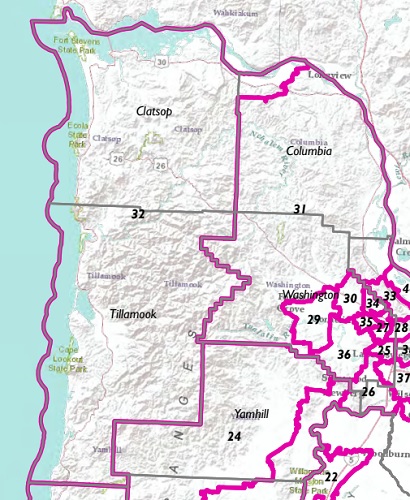
larger margin of 2,621 votes. He has filed to run for the seat again in 2022. It's an open question as to whether he is growing on the district, or if after two defeats, his brand is tattered.
Stout said "We did a ton of groundwork last time which I believe sets the stage for a decisive win in the 2022 election. I hear daily from local citizens and business leaders, and they are frustrated. Many feel that our rural communities have been marginalized by a disproportionate emphasis on urban policy. It's time to restore balance to our economy and take a stand for our rural communities.â€
Despite the fact that Senate District 16 has a conservative bent to it -- the economy of the district is tourism and natural resource extraction -- the departure of Witt and possibly Johnson as well as the tight voter registration in the districts make these attractive seats for both parties and will certainly draw quality contenders for both parties in both seats.
The other half of Senate District 16 -- each Oregon Senate District is comprised of exactly two House Districts -- is House District 32 where first-termer Suzanne Weber (R-Tillamook) will look to hold her seat.
In 2018 all three seats were held by Democrats: House District 31 by Witt, House District 32 by Tiffiny Mitchell and Senate District 16 by Betsy Johnson. 2022 could see all three seats going to Republicans.
--Ben Fisher| Post Date: 2021-10-13 17:03:58 | Last Update: 2021-10-14 16:38:17 |
The Court unanimously decided that the change in the law must be retroactive
The Oregon Supreme Court has done it again. They've made the effective repeal of the death penalty in Oregon retroactive. With the passage of
SB 1013 in 2019, "aggravated murder" was redefined -- making it harder to qualify for -- but not retroactively so.
The new law redefined crime of aggravated murder -- the only crime for which the death penalty is a possible sentence -- to include
- Premeditated, intentional homicide of two or more persons that is committed with the intent to either intimidate, injure, or coerce a civilian population, influence the policy of a government by intimidation or coercion, or affect the conduct of a government through destruction of property, murder, kidnapping or aircraft piracy -- terrorist acts.
- Murder by a defendant in custody, after the defendant was previously convicted in any jurisdiction of any homicide that would constitute the crime of aggravated murder or murder in the first degree.
- Premeditated intentional murder against a person under 14 years of age.
In an opinion authored by Oregon Supreme Court Justice Rebecca Duncan,
Oregon v. David Ray Bartol, the Court unanimously decided that the change in the law must be retroactive -- in short because the law changed the moral standard, it would be cruel and unusual under the US Constitution’s Eighth Amendment to apply the death penalty to a crime that
was a death penalty crime when committed, but no longer is.
 T
The death penalty has been on the books and off the books several times throughout Oregon's history, driven by the voters, the Legislature and the judiciary. Initially, the Oregon Constitution contained no provision for the death penalty. The death penalty for first degree murder was adopted by statute in 1864 -- just five years after statehood.
From 1864 to 1903, county sheriffs conducted executions. In order to restrict public attendance at executions, the Oregon Legislature amended the law to require executions be carried out at the Oregon State Penitentiary in Salem in 1903.
Between 1904 and 1914, 24 men were hanged at the penitentiary. On Dec. 13, 1912, four men were executed on the same day, the most at one time at the penitentiary. There have been seven executions of two people on the same day.
In 1914, Oregon voters, by constitutional amendment, repealed the death penalty with a razor-thin 50.04 percent of the vote adding Article I, 36 of the Oregon Constitution. In 1920, voters restored the death penalty by repealing Article I, 36 and approving Article I, 37-38, with 56 percent of the vote.
On Nov. 3, 1964, Oregon voters repealed the death penalty by 60 percent of the vote. On Nov. 5, 1964, Governor Mark O. Hatfield (R) commuted the death sentences of three people
The repeal remained in effect until 1978, when Oregon voters approved Ballot Measure 8, re-instituting capital punishment by lethal gas. Unlike prior death penalty laws, Measure 8 did not amend the Oregon Constitution, but rather was incorporated into the Oregon Revised Statutes, amending ORS 163.115 and creating ORS 163.116. Measure 8 won 64 percent of the vote.
Under the death penalty statute, the sentence was determined by the trial judge, without a jury. In 1981, the Oregon Supreme Court struck down the death penalty statute because it deprived the defendant of his right to trial by jury.
A D V E R T I S E M E N T

A D V E R T I S E M E N T
In 1984, Oregon voters approved Ballot Measure 6 which created Article I, 40 and exempted capital punishment from Article I, 15-16 of the Oregon Constitution. The measure passed with 55 percent of the vote.
Ballot Measure 7, in 1984, amended ORS 163.150 to require that, following a conviction for aggravated murder, a defendant be given a separate sentencing hearing before the trial jury. The measure passed with 75 percent of the vote.
In all, between 1904 and 1994, 115 people have been sentenced to death in Oregon, and 58 of those have been executed. The rest have had their sentences reduced, dismissed, commuted, or have died in prison. Of the 58, 55 were white and three black. Their ages ranged from age 17 to 67.
--Staff Reports| Post Date: 2021-10-13 10:29:40 | Last Update: 2021-11-12 17:29:37 |
Offered by Willamette National Forest Service
The Willamette National Forest will be offering free personal-use firewood permits, with a limit of six cords per household, per year beginning Oct. 1, 2021. Permits will be available over the phone or will be mailed to customers directly. This process generally takes five to seven business days.
“We are pleased to be able to offer free personal use firewood across the national forests in Oregon and Washington,†said Regional Forester Glenn Casamassa. “This change will benefit people who rely on firewood as their primary heat source and will allow us to dispose of material that otherwise would have a cost to burn or remove.â€
Permit availability may vary by district depending on the availability of wood and the type of permit. Contact the respective district office to confirm. Additionally, firewood charge permits may be purchased for $10 on the Willamette National Forest. Processes for the free use firewood program and costs for charge permits may differ on other national forests.
A D V E R T I S E M E N T

A D V E R T I S E M E N T
Along with the Willamette National Forest, the following national forests will also transition to the free use firewood program beginning Oct. 1, 2021: Mt. Baker Snoqualmie, Mt. Hood, Olympic, Rogue-River Siskiyou, Siuslaw, and Umpqua. A second transition will occur no later than Jan. 1, 2022, for the following national forests: Deschutes, Fremont-Winema, Gifford Pinchot, Malheur, Ochoco, Okanogan-Wenatchee, Umatilla, and Wallowa-Whitman. The Colville National Forest has offered free use firewood since 2019 and will continue with the same level of service to the public.
Free use firewood will be granted to individuals for personal use without regard to race, creed, color, national origin, age, handicap, or sex, and without restrictions regarding the wealth or residency of the recipient.
--Sabrina-Marie Fisher| Post Date: 2021-10-12 17:20:13 | Last Update: 2021-10-13 11:27:04 |
"Democrats are projected to win five of the six congressional seatsâ€
Former Republican Secretary of State Bev Clarno and others have
filed a lawsuit against current Democratic Secretary of State Shemia Fagan over the issue of partisan gerrymandering in drawing the lines for the Oregon Congressional Districts.
The suit describes how the gerrymandering found its way into the amendments offered to
SB 881 durng the recent special session:
The Democrat members of the Oregon Legislative Assembly at first appeared to recognize these statutory and constitutional mandates, creating a co-equal House Redistricting Committee with three Republican and three Democrat members, so as to overcome the commonly understood tendency for a single party’s politicians to favor their own party when drawing redistricting maps.

Yet, under heavy pressure from national Democrats and Democrat Party aligned special interest groups, Oregon’s Democrat leadership broke their bipartisanship promise.
The Democrat members of the House and Senate Redistricting Committees never negotiated proposed congressional maps with their Republican committee-member counterparts.
Instead, House Democrat leaders created a new House Redistricting Committee with two Democrat members and only one Republican member, in order to ensure that the Democrats’ gerrymandered congressional map was voted out of committee.
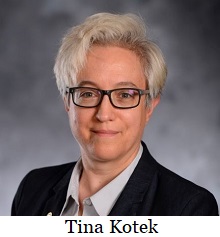
In evidence is what many observers are calling an unnecessary move by House Speaker Tina Kotek (D-Portland) in breaking the deal to give Republicans equal representation on the redistricting committees. According to the suit, "On September 20, 2021, Speaker Kotek broke her promise to have equal representation in the House Redistricting Committee between Democrats and Republicans, so that Democrats could
enact the map without Republican input."
During the 2021 regular session, Kotek cut a deal with Republicans to get them to abandon the delay tactic of
requiring all bills to be read in their entirety, as required by the Oregon Constitution unless waived by a 2/3 majority -- taking hours in the case of some bills -- before being passed. In exchange for this, Kotek agreed to have a redistricting committee split equally between Democrats and Republicans. Because Democrats are in the majority in the House, they are entitled to a majority on each committee.

In a surprise move during the special session called to pass the redistricting plan, Kotek
reneged on the deal and created new redistricting committees with Democratic majorities.
The suit contends that "mere days after Speaker Kotek had reneged on her promise for equal representation in the redistricting committee, the new congressional redistricting committee voted out of committee the Democrats’ gerrymandered map on a party line vote, sending the proposal to the full House."
House Republican Leader Christine Drazan (R-Canby) said, “Gerrymandering is cheating. Oregon Democrats want a map that protects incumbents
and silences the voices of Oregonians. This challenge is an opportunity for the courts to fix the political gerrymandering and create maps that truly represent Oregon.â€
Several quotes from prominent Democratic leaders are cited by the suit as a demonstration of the partisanship. It quotes Congressional Representative Kurt Schrader (D-Canby) as saying the agreement was like “shooting yourself in the head†and Congressional Representative Peter DeFazio (D-Springfield) describing the agreement as “an abysmally stupid move on her part.â€
The most controversial part of the Congressional map passed by the Democrats is that it places large amounts of Portland Democrats in districts with rural Republicans, such as Polk County, and even has the City of Bend in the same district as Southeast Portland. The suit contends that "Democrats are projected to win five of the six of Oregon’s congressional seats in a typical year, results that are not even arguably justified by the Democrats’ overall political support in this State or the political geography of the State."
All of the Oregon Supreme Court Justices were appointed by Democratic Governors.
--Staff Reports| Post Date: 2021-10-11 10:27:55 | Last Update: 2021-10-11 22:40:57 |
The city will pay the annual operations cost of about $585,000
The City of Eugene will open its first Safe Sleep site Oct. 4, at 310 Garfield St.
The location was one of the first two sites to be approved by the Eugene City Council in late July, and this “2nd and Garfield†site is the first to open to occupants after an intense couple of months of planning and site preparation.
The goal of Safe Sleep sites is to provide safe, legal places for people experiencing homelessness to sleep and connect to services as well as reduce the impacts of unsanctioned camping across the city. Sites will be managed by social service providers and provide a space for people experiencing homelessness to legally park their vehicles or sleep in tents. Since
the US Ninth Circuit decided Martin v. Boise which held that cities cannot enforce anti-camping ordinances if they do not have enough homeless shelter beds available for their homeless population, the city is in a stronger position to defend its anti-camping ordinances.
The site at 310 Garfield will accommodate up to 55 vehicles used for shelter, along with additional vehicles used by those residents for transportation. The five-acre property is owned by Lane Transit District, which will lease the site to the City at no cost for the first two years.
“We’re excited to have this first site open, as it will help provide needed stability for the people who will stay here and also reduce the impacts of on-street camping in the community,†said Regan Watjus, a City policy analyst focused on homelessness. “We’re grateful to be partnering with St. Vincent de Paul Society of Lane County, whose experience providing shelter and services for people who are unhoused will help ensure the site’s success.â€
St. Vincent de Paul Society of Lane County will run the site, and the city will pay the annual operations cost of about $585,000. The City has also made investments to prepare the site, including grading, gravel, electrical, plumbing, fencing and structures to be used by residents and site staff. The site will have 24/7 staffing, and occupants have been contacted in advance by social service providers to prepare them for a successful stay.
A D V E R T I S E M E N T

A D V E R T I S E M E N T
People staying at the two large temporary camps at 13th Avenue and Washington Jefferson Park will be prioritized to move into established Safe Sleep sites that accommodate tents or small structures. People living in vehicles in west Eugene will have the first opportunity to move into the safe parking sites.
Through the City’s partnership with Lane County, other actions are also underway, including coordinated outreach efforts, adding permanent supportive housing units, and expanding rapid rehousing programs. These efforts, when implemented together, are intended to make homelessness rare, brief, and non-recurring.
--Staff Reports| Post Date: 2021-10-11 09:47:12 | Last Update: 2021-10-11 10:27:55 |
It would take seven Grand Coulee dams to replace natural gas
It was Representative Pam Marsh's (D-Ashland) star performance to pass
HB 2021, the decarbonize cap-and-trade bill in the 2021 session. Using virtual meetings to cut off undesired testimony supporting other plans, she passed the bill that sets a target date of 2040 to be 100 percent carbon-free electricity below baseline emissions sold in the state. What is hidden in the bill is the ban on expanding or constructing power plants that burn natural gas or fossil fuels, which makes up 21.1 percent of electric energy consumption in Oregon.
The work group behind the bill advocated for collaboration and partnering for Oregon’s plan to be successful. Natural gas users might ask where the partnering is with their provider. With 2.5 million customers,
NW Natural Gas has a large impact.
NW Natural Gas held a webinar for their customers in which they outlined their work to transform organic waste, trash, flushing and food waste into renewable gas. Director of Environmental Policy and Corporate Responsibility at NW Natural Mary Moerlins said they are testing the end use appliances for various gas sources. If forced to use the same infrastructure, they can drive down emissions to zero by 2050. It would seem
HB 2021 handicaps their progress.
Oregon led the way by passing
SB 98 in 2019 adopting a renewable gas (RNG) program allowing purchase of RNG. The gross for RNG production using thermal gasification technology is about 17.5 percent of Oregon's total yearly use of natural gas
reported in 2018. Director of Renewable Resources at NW Natural Anna Chittum reported a growth from 40 to 325 plants nationwide with new technology developments, looking to Denmark and France as examples. Now it seems
HB 2021 will stifle that progress.
NW Natural Gas says studies show there is enough RNG to displace all the fossil fuel in the residential sector.
RNG could currently replace as much as 20 percent of the imported natural gas. Portland is already contracting with NW Natural to collect biogas emissions from their wastewater treatment plant and convert it to renewable natural gas. Eugene Water Board also started a Smart Energy program for delivery of RNG.
The real problem with cutting back on natural gas development is that gas systems have long-duration storage -- two-and -half times the hydroelectric facilities with about 1,500 times the energy delivered from current large-scale utility batteries. That equals about a two-trillion-dollar battery. Nonhydroelectric renewables is an immediate-use process. Converting wind, solar or hydro to renewable hydrogen to use in natural gas pipelines is being experimented up to 20 percent without causing damage to the current infrastructure.
Oregon is following the path of the Biden Administration. The United States was energy independent until the resources were shut down and now the U.S. is forced to import. Oregon is closing off all coal use, proposes to remove dams producing hydro power, and prevents fossil fuel development, despite new technologies.
A D V E R T I S E M E N T

A D V E R T I S E M E N T
Chittum said it would take seven Grand Coulee dams to replace natural gas, plus more infrastructure. It emphasizes the need for all systems of energy, and collaboration for supporting each other. It takes time to see results, something the legislature has not allowed. Oregon Department of Energy latest
Biennial Energy Report dated November 1, 2020, evaluated information through 2018. When the legislature implements new programs based on outdated information, it’s cause for concern. Even with 2018 data, it’s evident that no one source can retain stable energy output during heat waves or deep freeze peaks that takes every source at capacity output. The Mist facility was converted into a natural gas storage that is usually refilled from April through September and drawn down between October and March. Natural gas storage enables NW Natural to provide reliable gas service to customers during periods of high gas usage unlike some other forms of energy.
The input from natural gas customers is important for decision makers to consider when they are presented with proposals that could force communities to exclusively depend on the electric grid for all energy needs. The DEQ is conducting rulemaking to establish a new Climate Protection Program to reduce greenhouse gas emissions, address the effects of climate change, and alleviate burdens for environmental justice impacted communities. Rulemaking
public comment period for the draft rules is open until October 25, 2021 at 4:00pm.
--Staff Reports| Post Date: 2021-10-10 16:21:56 | Last Update: 2021-10-11 09:47:12 |
Read More Articles










 Since summer, cases infecting unvaccinated or partially-vaccinated persons has declined at a greater rate than cases infecting fully vaccinated persons.
Since summer, cases infecting unvaccinated or partially-vaccinated persons has declined at a greater rate than cases infecting fully vaccinated persons.
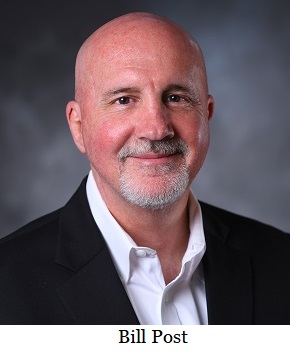


 “The Portland City Council continues to drag their feet on addressing this crime spike. The Multnomah County District Attorney Mike Schmidt refuses to do his job and has rejected the vast majority of riot cases. Because Portland defunded their gun violence unit, causing an officer shortage, almost half of the murderers this year have not been arrested. If local governments won’t keep their communities safe, the state must.
“The Portland City Council continues to drag their feet on addressing this crime spike. The Multnomah County District Attorney Mike Schmidt refuses to do his job and has rejected the vast majority of riot cases. Because Portland defunded their gun violence unit, causing an officer shortage, almost half of the murderers this year have not been arrested. If local governments won’t keep their communities safe, the state must.



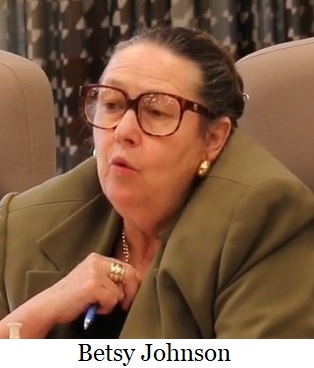
 House District 31 includes Columbia County and much of rural Washington County and, in part because of the voter make-up that redistricting has left and in part because of the retirement of embattled Representative Brad Witt (D-Clatskanie), the district will most likely see a high-priced effort on the part of both parties to control the seat. Paired with its sister district -- House District 32 which is the Northwest Corner of Oregon from Tillamook to Astoria -- the two make up Senate District 16, currently held by Senator Betsy Johnson (D-Scappoose).
House District 31 includes Columbia County and much of rural Washington County and, in part because of the voter make-up that redistricting has left and in part because of the retirement of embattled Representative Brad Witt (D-Clatskanie), the district will most likely see a high-priced effort on the part of both parties to control the seat. Paired with its sister district -- House District 32 which is the Northwest Corner of Oregon from Tillamook to Astoria -- the two make up Senate District 16, currently held by Senator Betsy Johnson (D-Scappoose).
 larger margin of 2,621 votes. He has filed to run for the seat again in 2022. It's an open question as to whether he is growing on the district, or if after two defeats, his brand is tattered.
larger margin of 2,621 votes. He has filed to run for the seat again in 2022. It's an open question as to whether he is growing on the district, or if after two defeats, his brand is tattered.

 The death penalty has been on the books and off the books several times throughout Oregon's history, driven by the voters, the Legislature and the judiciary. Initially, the Oregon Constitution contained no provision for the death penalty. The death penalty for first degree murder was adopted by statute in 1864 -- just five years after statehood.
The death penalty has been on the books and off the books several times throughout Oregon's history, driven by the voters, the Legislature and the judiciary. Initially, the Oregon Constitution contained no provision for the death penalty. The death penalty for first degree murder was adopted by statute in 1864 -- just five years after statehood.





 In evidence is what many observers are calling an unnecessary move by House Speaker Tina Kotek (D-Portland) in breaking the deal to give Republicans equal representation on the redistricting committees. According to the suit, "On September 20, 2021, Speaker Kotek broke her promise to have equal representation in the House Redistricting Committee between Democrats and Republicans, so that Democrats could
enact the map without Republican input."
In evidence is what many observers are calling an unnecessary move by House Speaker Tina Kotek (D-Portland) in breaking the deal to give Republicans equal representation on the redistricting committees. According to the suit, "On September 20, 2021, Speaker Kotek broke her promise to have equal representation in the House Redistricting Committee between Democrats and Republicans, so that Democrats could
enact the map without Republican input."
 In a surprise move during the special session called to pass the redistricting plan, Kotek reneged on the deal and created new redistricting committees with Democratic majorities.
In a surprise move during the special session called to pass the redistricting plan, Kotek reneged on the deal and created new redistricting committees with Democratic majorities.


